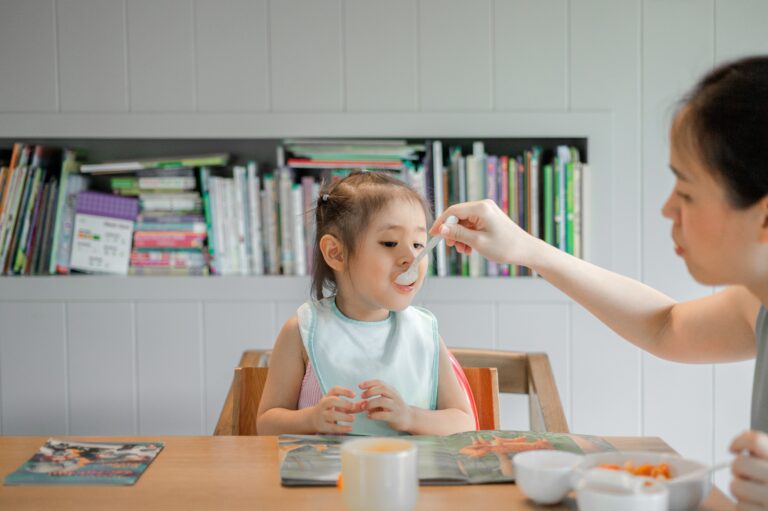It’s been almost 30 months since the pandemic bellowed into our lives, and the state of parenting is starting to look uncomfortably like it did before the world turned upside down.
Perhaps this is what we should have expected: a forceful return to the elaborate birthday parties, intensive sports schedules, and constant carpooling that has defined the parenting of our generation.
I’ll admit, I was hopeful for a culture shift. So many friends during the height of pandemic days remarked on how much more peaceful life seemed without the chaotic kid schedules to run their lives. By no means were these parents unstressed. The stress simply shifted to worrying for their kids’ health, education, and supervision in the absence of school and childcare.
But at least soccer practice schedules didn’t run their lives.
But now we seem to have the worst of all worlds: looming threats of quarantines remain while we’re also back to mental load of managing a whole family’s complicated needs and overlapping schedules.
We’d not yet recovered from the emotional, financial, and logistical burdens of the Covid era before once again having to jump through the parenting rings of fire.
The result? Parental burnout.
–
It can be an uncomfortable thing to admit to being burnt out on parenting. Unlike the burnout that comes from work stress, we generally can’t go looking for another family to raise when we’ve had it up to here with our own. And acknowledging burnout when it comes to our children can feel a little too close to saying we don’t love them.
To be clear, burnout has absolutely nothing to do with our love for our children.
But in a society that idolizes motherhood, at least in its lip service, it can feel like blasphemy to acknowledge we don’t like it. We’re told to believe that to not adore our status as mom is to be ungrateful, and there’s no room in American society for an ungrateful woman.
But while we sit around pretending to love the shitwork of parenthood so we look like good people, parental burnout is devastating our emotional, mental, and physical health.
–
Burnout as a condition was conceptualized in the 1970s. Psychologists were trying to describe the experience of employees in helping professions, like doctors and nurses, who felt stressed, ineffective, and demoralized. It wasn’t exactly depression, but it wasn’t not depression, either.
It was burnout: a state of emotional exhaustion, depersonalization, and a decrease in fulfillment. Those are indeed the three criteria for burnout. Said another way, it’s the feeling that I’m tired, I suck, and I don’t care.
After decades of study, the World Health Organization actually acknowledged burnout as a syndrome several years ago. They confined their definition to occupational-related issues, but the real world tells us that there is really no difference between the burnout from being a social worker and the burnout of parenting young children. At least there are off-hours in social work.
Despite it’s absence from the WHO’s diagnostic manual, parental burnout has received attention and research over the last couple of decades. What we’ve learned is that parental burnout takes a well-worn path.
The process of burnout generally starts with emotional or physical exhaustion. We then start to worry about how we’ll get everything done, especially being so worn down, and the stress and anxiety take hold. In order to preserve the little energy and resources we have, we start to distance ourselves from our kids. It’s often not a conscious process and it looks less like walking away from them and more like being distractible, emotionally absent, and disconnected from them. On top of all of this, we feel trapped in this cycle and unable to make meaningful changes. Hence, the burnout cycle takes hold.
–
Putting the responsibility for burnout recovery on individuals is like asking people to save themselves from a burning building. We’re drowning in flames and smoke and yet told that we have to find our own way out.
The most meaningful solutions are systemic. They involve recognizing that our framework for parenting in the U.S. is broken and unsustainable. It operates on the backs of fried mothers. It puts the burden of quality healthcare, childcare, and education on parents with limited capacity and power. There’s no way to not burn out in this system.
But what are we as individuals to do to protect our own well-being? If we’re fortunate enough to have financial resources, then we can turn our attention to how to fortify ourselves. One way is to take a cultural stand and reject the notion of kids being over-scheduled. There is simply no reason kids need to be in more activities than they have fingers (on one hand) or to that we have to say yes to every playdate or enrichment opportunity.
Another way is to tap into community care and to begin asking for and accepting the support of others. The “it-takes-a-village” mentality is indeed the only one I know of that protects us from the crushing weight of individual standards and unreasonable expectations. Even when life was simpler, we were never meant to do parenting as alone as we are today.


